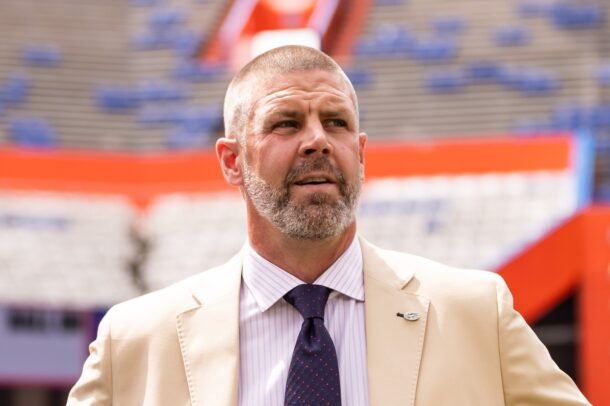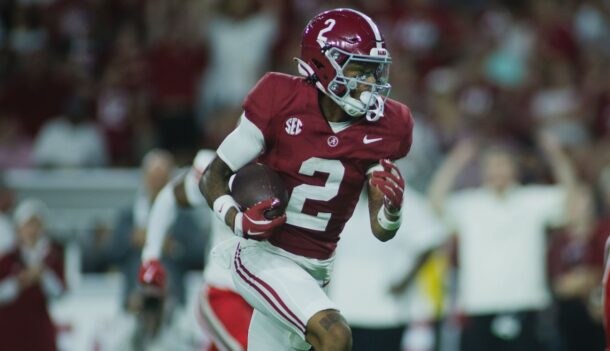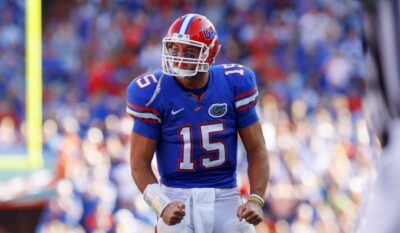
O’Gara: Why hasn’t Florida fired Billy Napier yet? That question is worth digging into
Billy Napier is done, and I think he knows it. Nothing is official yet, but after he addressed the media Saturday to discuss another Swamp-clearing blowout loss, the Florida coach admitted something that sounded like a guy who knows his days are numbered.
He was asked about getting booed off the field, which didn’t prompt a defensive response. Instead, Napier said he would’ve been right there with the disgruntled Florida fans.
“I probably would’ve done the same thing, truth be known.” – Billy Napier when asked about being booed off the field after Florida’s loss to Texas A&M.
Per @delatorre, Florida’s board of trustees will meet Sunday morning. pic.twitter.com/h5DBQRAVk7
— The Next Round (@NextRoundLive) September 15, 2024
As of this writing (Monday early afternoon), Napier said there’s been no discussion of his future. Take that for what it is. What’s he supposed to say? “Oh, I bet my bosses and boosters are meeting and discussing when would be the ideal time to fire me.” That’s not how this works.
I’ll give Napier credit for not offering any sort of spin zone after dropping his 7th consecutive game vs. FBS competition. That’s because he doesn’t have one. All he has is an underperforming team that lacks an identity and a pulse. Well, he also still has a job. Why? Shouldn’t Florida just rip off the Band-aid instead of delaying the inevitable?
That question has layers to it. It’s not just as simple as Napier didn’t accomplish the job he was paid to do, and Florida’s only option is to cut ties with him now. That’s true even if there’s nothing that can be done to save his job. One would think there are discussions about the future of the person who would usually be in charge of determining a coach’s future, AD Scott Stricklin. Sorting through that isn’t easy.
There are pros and cons to firing a head coach in mid-September. Punting on a season that early sends a message to players, though based on the way that things have started at Florida, it’s not like the Gators would be bailing on “inspiring” football. While some have made that move in September, it’s not a given. Nebraska might’ve pulled the plug on Scott Frost after Week 3 in hopes of keeping its historic sellout streak intact (it dates to 1962 but 2020 didn’t count because of COVID). That might sound silly, but optics play a part in a decision like that. Florida’s optics couldn’t have been worse in the opener.
Well, check that. You know what would be worse? What could happen in Florida’s next home game (it travels to Mississippi State and has a bye before that). If UCF waltzes into Gainesville with former Arkansas QB/Swamp defeater KJ Jefferson leading its No. 2 rushing attack in FBS and stomps all over the Gators’ run defense, Napier’s nightmare will become even more horrifying. Replacing those Miami fans with UCF fans is the only way the optics can reach a new low.
It’s costly to have ticket sales plummet, even at an “everything school” like Florida.
(I only put “everything school” in quotes because it felt grammatically correct. I promise that wasn’t sarcasm, and I do genuinely praise Florida for being excellent at a variety of things.)
If Florida starts 2-3, you can bet that stadium will lack juice for those last 3 home games, and understandably so. That’s not what you want recruits or boosters to see, albeit for different reasons. Promoting an interim coach isn’t necessarily a lock to sell tickets or sell a better vibe to recruits, unless Florida has some sort of 2022 Bryan Harsin-to-Cadillac Williams situation that we don’t know about.
A packed Jordan-Hare Stadium celebrating Cadillac’s first win as interim HC
Auburn being Auburn. @AuburnFootball | #SECNTakeover pic.twitter.com/TyjZKORhAt
— SEC Network (@SECNetwork) July 4, 2023
Speaking of recruiting, what’s worse — recruiting with a staff that’s about to be fired or recruiting with a staff that’s already fired? You could go either way with that. Yeah, you might have more commitments if you’re recruiting with a staff that’s about to be fired, but what happens when the Band-aid gets ripped? You’re still going to take hits. That’s reality for any team that makes a coaching change in this era of loosened transfer portal. Shoot, Florida could fire Napier next March and still get gutted by the 30-day transfer window that would open.
But barring the unthinkable, Napier won’t get to December, much less March. Nobody waits until December to make a move anymore because of the Early Signing Period. It’s fair to wonder what it means for teams to get a head start on that in mid-September as opposed to mid-November. You don’t need that long to vet candidates, none of whom are going to agree to anything in mid-September, unless they’re unemployed.
In the case of Nebraska firing Frost, it worked out for the program that a top target like Matt Rhule was fired by the Panthers on Oct. 10. Perhaps the program did some early vetting into Rhule’s potential interest in the job and pulled the trigger early. Nebraska could’ve waited until October to fire Frost and it would’ve saved $7.5 million (!), but again, the shutout streak is the only common link between Nebraska now and Nebraska during its glory years.
In other words, that was a unique situation. It’s unlikely that Florida would pursue someone who could be unemployed in mid-October.
Unless a certain Urban … nope. That was a joke. Don’t do that to yourselves, Florida fans.
My advice? Let this process play out. Know that holding onto Napier instead of firing him after Week 3 doesn’t mean that the Gators are about to let him play out the entire season.
It’s also hard to say that firing Napier in September or November will have major DJ Lagway implications. Lagway came to Florida because of Napier. Firing Napier in September would mean that the former 5-star recruit would essentially spend the majority of his true freshman season in a different scenario than the one he signed up for. Lagway was billed as the potential savior, but there was always a world in which Napier was going to squander his future at Florida before the true freshman ever got to be the face of the program.
Dare I say, we’re living in this world. Some would call that world a nightmare; others would call it a fantasy. Whatever it is to you, reader of this column, it’s Florida’s new reality.
Napier’s days are numbered. Firing him could come after a win a la Jimbo Fisher at Texas A&M. To date, that’s the only paid buyout to a college football coach that’s richer than what Florida would owe Napier (north of $27 million depending on the timing).
Dubious company awaits. It’s not a matter of “if” but “when.”
Connor O'Gara is the senior national columnist for Saturday Down South. He's a member of the Football Writers Association of America. After spending his entire life living in B1G country, he moved to the South in 2015.







